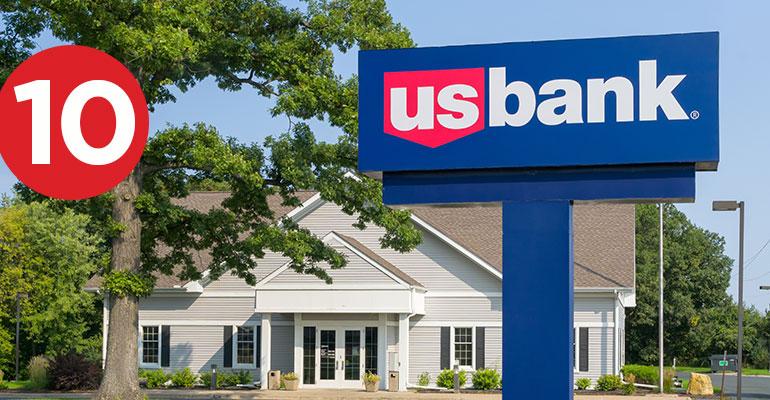- Regional Banks Face Bumpy Road Away from LIBOR “Regional banks are struggling to move away from the troubled London interbank offered rate, saying alternatives to the key benchmark for variable-rate debt could hurt their ability to make new loans. Those banks, including PNC Financial Services Group, Regions Financial Corp. and U.S. Bancorp, say they are concerned the new secured overnight financing rate, or SOFR, could notch outsize drops at times of economic stress. That could force banks to lend at low rates at times when their own borrowing costs are rising.” (Wall Street Journal, subscription required)
- Next Year Will Be Hard on the Housing Market, Especially in These Big Cities “Home sales will drop, the housing shortage could become the worst in U.S. history, and home values will shrink in some cities. That’s the 2020 forecast from realtor.com, which holds one of the largest databases of housing statistics available. Sales of existing homes will fall 1.8% from 2019, according to the forecast. Home prices will flatten nationally, increasing just 0.8% annually, but prices will fall in a quarter of the 100 largest metropolitan markets.” (CNBC)
- Home SF Was Meant to Boost Density Along Transit. But Can It Fulfill its Promise? “Two and a half years ago, San Francisco adopted an aggressive plan to add more housing, including affordable homes, along transit corridors. Under the Home SF program, officials hoped to see 16,000 units completed by 2037. The program lets developers exceed height and density limits in exchange for including more affordable housing in their projects, and the idea was to push more projects in historically development-wary neighborhoods.” (San Francisco Chronicle)
- Fannie Mae, Freddie Mac Will Soon Let Borrowers Take Out Mortgages Over $500K “Fannie Mae and Freddie Mac will let mortgage borrowers nationwide take out home loans over $500,000 in 2020. The Federal Housing Finance Agency announced Tuesday that it will increase the limit on conforming loans, meaning mortgages that adhere to the standards imposed by Fannie Mae and Freddie Mac to a maximum of $510,400 nationwide. In high-cost areas, the maximum loan limit for mortgages acquired by Fannie Mae and Freddie Mac will be $765,600.” (MarketWatch)
- L.A. Could Curb Campaign Donations from Real Estate Developers “Los Angeles leaders are slated to vote Wednesday on a new law that will crack down on campaign contributions from real estate developers seeking city approval for their projects. The idea, first proposed by council members nearly three years ago, had languished before an FBI raid at City Hall last year cast a fresh spotlight on long-standing concerns about developer donations and political power.” (Los Angeles Times)
- Here Are the 10 Top Retailers That Investors Are Betting Against as the Holiday Shopping Season Ramps Up “As the holiday shopping season ramps up after Black Friday and Cyber Monday, investors are betting against a number of big retailers. Online ecommerce platforms like Amazon as well as brick-and-mortar stores such as Macy's made the list of the top retail companies that investors are shorting, according to data from financial-analytics provider S3 Partners.” (Business Insider)
- Wyndham Hotels Promotes Finance Exec to CFO Amid Post-Spinoff Growth Push “Wyndham Hotels & Resorts Inc. has promoted a financial executive to finance chief as the company eyes the next phase of growth following a spinoff from its parent last year. The Parsippany-Troy Hills, N.J.-based hotel company said Tuesday that Michele Allen, the company’s treasurer and executive vice president, has been named chief financial officer. She succeeds David Wyshner, who will serve in a senior advisory role until March 1.” (Wall Street Journal, subscription required)
- Glossier Is Moving into Nordstrom, with Mini-Shops for its Perfume, Which Has a Cult-Like Following “A beauty business born on the internet is teaming up with a department store chain that has plenty of bricks and mortar. Glossier, known for its blush-pink aesthetic and popular make-up products, is opening temporary shops within seven of Nordstrom’s stores, including the new Nordstrom flagship location in New York, from Dec. 3 through Feb. 16. The beauty company will only be selling its ‘Glossier You’ fragrance, which it launched in October 2017.” (CNBC)
- Colliers Appoints Gil Borok as U.S. CEO “Commercial real estate and investment management firm, Colliers International, announced today that Gil Borok has been appointed as the new president and CEO of its U.S. operations. Borok spent the past two years as the firm’s COO and the leader of its U.S. business. He is credited with bolstering the leadership team and expanding the firm’s presence. He previously spent 15 years at CBRE, including a stint as the firm’s CFO from 2010 to 2014.” (Commercial Observer)
- Columbia Property Trust to Buy San Francisco Tower for $239M “Columbia Property Trust is under contract to acquire 201 California, a 272,000-square-foot Class A office tower in San Francisco, for $239 million. Beacon Capital Partners will sell the property by year-end, after two years of ownership. The firm acquired the asset in December 2017 for $179 million, according to Yardi Matrix. The 17-story office building occupies less than 1 acre at 201 California St. in San Francisco’s North Financial District. Located just off Market Street, the building is within walking distance of several public transportation options, including light rails, bus lines and the Embarcadero BART stop.” (Commercial Property Executive)
0 comments
Hide comments

